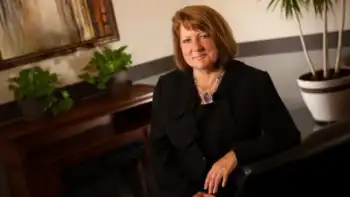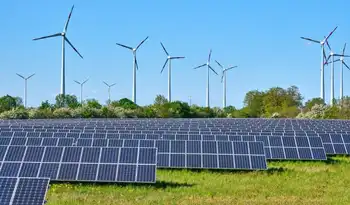3 deregulation bills compete
RICHMOND -- - Supporters of an electric deregulation bill pushed by the governor and attorney general told lawmakers recently that two other proposals might not avert a shift in control of some Virginia power lines to the federal government.
There are three main bills that would set back electric restructuring headed for General Assembly debate in the session that has opened.
The bill sponsored by Gov. Mark Warner and Attorney General Jerry Kilgore would extend capped electric rates for three years until 2010.
Competing proposals sponsored by Harvey Morgan, R-Gloucester, and Terry Kilgore, R-Scott, would delay competition and put electric rates back into one price instead of the three separate components of the price now shown separately on electric bills. The price needed to be broken into pieces for deregulation, but putting the rate back together is seen as a way to keep more control over the commonwealth's electricity markets in Richmond.
Morgan's bill would keep rates capped until 2007 and delay competition. Del. Kilgore's bill would give Virginia regulators authority to set rates indefinitely and delay competition.
The parties testifying today supported parts of all three bills, showing the difficulty legislators will face and foreshadowing the need for a compromise of some kind.
"Most of the amendments you'll see today are variations of the same theme - slow down or stop," Deputy Attorney General Judith Jagdmann told lawmakers.
The issue of whether Virginia needs to rebundle rates as part of any legislation became important last fall, when the Federal Energy Regulatory Commission told American Electric Power to ignore state laws in Kentucky and Virginia.
Virginia state regulators, Attorney General Jerry Kilgore and Kentucky officials are fighting the federal agency over whether states have the right to place conditions on utilities joining regional power grids that coordinate the movement of electricity across states.
The agency said the two states put too many conditions on the utility's request to join a regional power market managed by PJM Interconnection. The federal commission has already approved AEP's application to join PJM.
Secretary of Commerce and Trade Michael Schewel, who worked with Jagdmann on the Warner/Kilgore bill, told lawmakers recently that their proposal would still allow legislators to rebundle rates if they felt it was necessary. But Schewel warned that rebundling might not head off the federal government.
Kentucky's bundled rates didn't discourage the federal action against that state.
An energy bill lingering in the U.S. Senate has ambiguous language on state versus federal regulation, said Arlen Bolstad of the Virginia State Corporation Commission.
PJM representative Philip Abraham said the electric transmission system is "clearly part of interstate commerce" and therefore subject to federal oversight.
The Virginia Energy Provider's Association, which represents companies that want to sell wholesale electricity to companies in Virginia, supported the attorney general's legislation and asked lawmakers not to delay the utilities' entry into PJM beyond the goal of 2005 or rebundle rates.
Related News

Over 30% of Global Electricity from Renewables
EUROPE - A recent report by the energy think tank Ember marks a significant milestone in the global energy transition. For the first time ever, according to their analysis, renewable energy sources like solar, wind, hydro, and geothermal now account for more than 30% of the world's electricity generation. This achievement signifies a pivotal shift towards a cleaner and more sustainable energy future.
The report attributes this growth to several key factors. Firstly, the cost of renewable energy technologies like solar panels and wind turbines has plummeted in recent years, making them increasingly competitive with traditional fossil fuels. Secondly, advancements…




